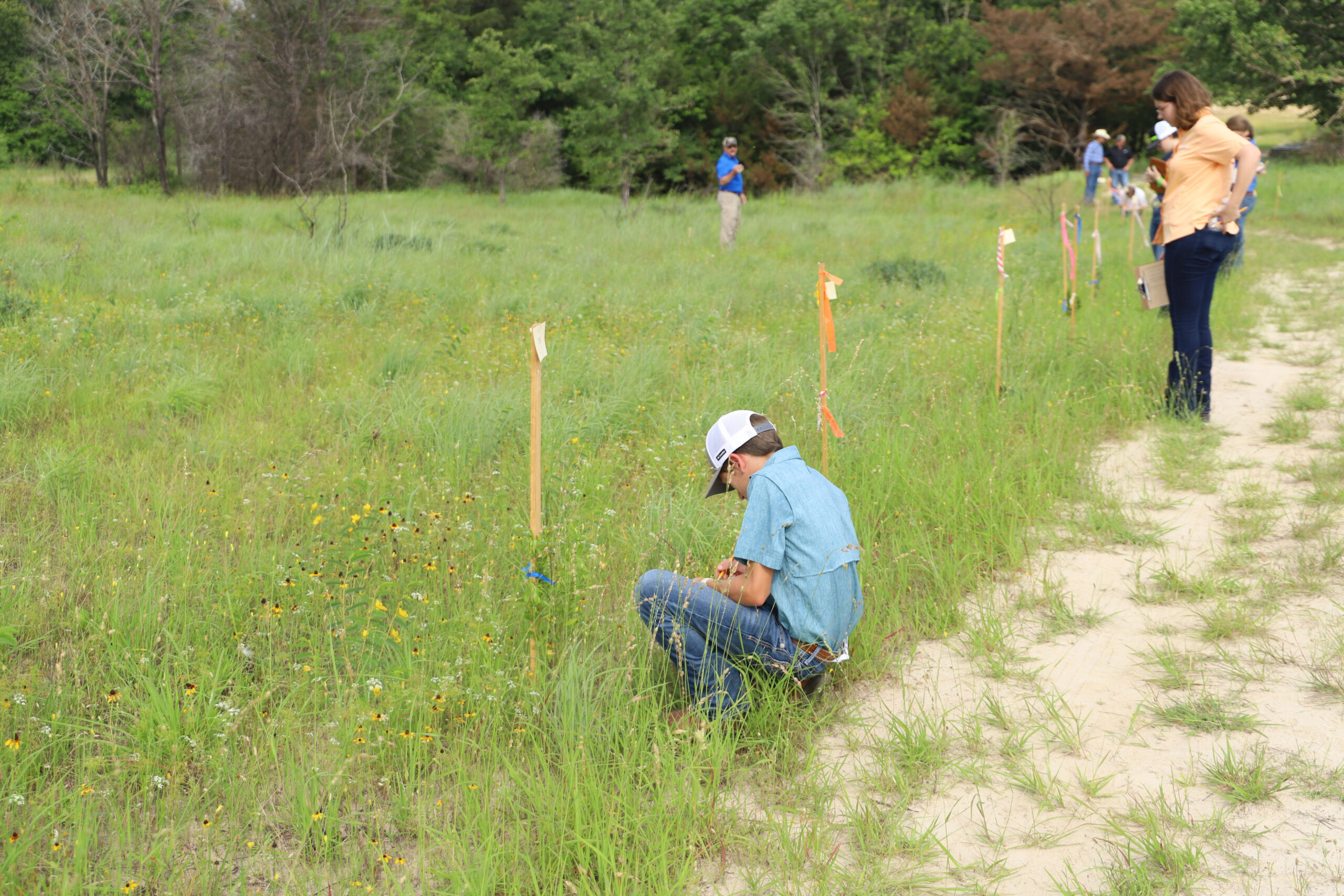Do you love the great outdoors? If so, this project is for you! The Range Science project promotes and develops knowledge and skills in practical range, natural resource and ranch management This is a great project for someone who wants to own a ranch or manage land that produces renewable goods and services for humans.
The Range Science project promotes and develops knowledge and skills in practical range, natural resource and ranch management. Projected costs are low to medium.
Topics include:
- Ranchland management
- Water and how plants grow
- Vegetation areas of Texas
- Brush control and weed control
- Poisonous or toxic plants
- Grazing management strategies
- Ranch management practices and leasing rangeland
- Risk management for land
- How domestic grazing animals and wildlife species eat
The Master Plant List names and gives characteristics of 129 range and pasture plants used in the 4-H Range and Pasture Grass Identification Contest, 4-H Range Evaluation Contest and the major livestock show Range and Pasture Plant Identification contests at Houston, Fort Worth, Dallas State Fair, the Amarillo Tri-State Fair and 4-H open contests.
Books and study guides for purchase:
Resources
Events and Activities
Click here for state-wide event calendar!
Farmers or ranchers, rangeland specialists, and other professionals may have more opportunities in your county. These are just a few state level opportunities.
Natural Resources Photography Contest
The Texas 4-H Natural Resources Photography Contest encourages observation within specific Natural Resources project areas and allows youth to demonstrate skills learned in the area of photography, including the use of photographic equipment and processing of photographs. This contest provides another opportunity to showcase the photographic work of 4-H members in all age divisions.
Range and Pasture Grass Identification Contest
You will learn to identify all of the 74 native and introduced grasses which are listed on the Master Plant List for 4-H. The grasses in the grass contest are important for their value in making decisions about the Texas forage resources, their health, and help to determine the change that has occurred on our land base in Texas. You will learn how plants grow, grazing impacts on land, grass and plant identification and examination. Visit the State Roundup webpage to learn more.
- Contest Information Sheet
- Contest Guide
- Plant ID Contest Scorecard
- Practice Resource List
- Descriptions of Range and Pasture Plants
- Master Plant List
Range Evaluation Contest
The next step after you have learned the grass and plant types! The 4-H judging program concentrates on making decisions about the rangeland resource including ecological site health determination, stocking rate, and the use of management tools to benefit the forage, soil, water, and livestock/wildlife resources. You will learn about grazing distribution, season of forage use, kinds and classes of livestock and stocking rate. And then actually calculate a current stocking rate for the given situation. The key to success in this contest relies on your ability to identify plants and have knowledge of their ecological and economic value. The 4-H Range Evaluation Contest is conducted totally outdoors. Visit the State Roundup webpage to learn more.
- Contest Information Sheet
- Contest Manual
- Range Evaluation Part I – Plant Identification
- Range Evaluation Part II – Ecological Assessment
- Range Evaluation Part III – Rangeland Health
- Ecological Site Description & Plant Production Worksheet
- Similarity Index and Recommended Stocking Rate Calculation Partial Credit
Soil Judging
Contestants will judge four soil profiles with 20-minutes allowed for each and determine the soil characteristics of the profiles and make interpretations based on observation. Visit the State Roundup webpage to learn more.
Texas Freshwater Fisheries Center Fish Art Contest
The Fish Art Contest sparks the imaginations of students and provides valuable lessons about fish and the importance of conserving Texas’ aquatic resources. Art, science, and creative writing foster a connection to the outdoors and inspire the next generation of stewards.

